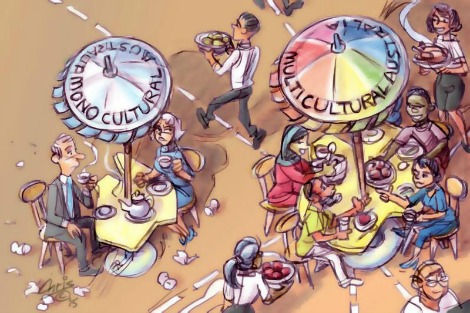Unskilled immigration is good for Australia
- Admin

- Feb 15, 2018
- 3 min read
http://www.eurekastreet.com.au/article.aspx?aeid=45651#.V39XtOZ95p8

The Trans-Pacific Partnership might be the talk of the trade world at the moment, but we're missing out on the discussion of a bigger factor that doesn't include finance or goods, and has the potential to grow our economies and change the lives of millions of people for the better. It is: letting people move.
George Megalogenis' book Australia's Second Chancecontains valuable insights into long-held beliefs of the local settler population about migrants. He uses the example of a rally in 1849 organised by residents of Sydney against arrivals of more convict boats.
Workers who 'wanted to maintain their high-wage society', he writes, made 'the first of countless calls that would be made against migrants who threatened to undercut their standard of living'.
A contemporary example of this is the outcry that accompanies bilateral or multilateral free trade agreements, which include provisions about projects that can employ labour from overseas. A familiar refrain.
Over the last three decades, skilled migrants have accounted for an increasing proportion of visa grants, rising from 18 per cent in 1983 to almost 70 per cent in 2014.
Immigration is perceived as being beneficial only insofar as it contributes towards filling skills shortages to aid our productivity and global competitiveness, and isn't seen to be upending the status quo.
To this end it has succeeded. Steady levels of population growth and the high skilled characteristics of our migrants have strengthened our economy and, according to some accounts, even helped us avoid a recession in 2008. A recent report from the Scanlon Foundation investigating social cohesion finds that 85 per cent of respondents think multiculturalism has been good for Australia.
There is a downside to this. As a result of the excessive focus on skills that are in demand, there are no avenues for low-skilled potential migrants to live and work in Australia.
I have previously written about my family's and, by extension, my experience with low-skilled migration. I would not be in the privileged position I am in today were it not for my parents' decision to move elsewhere for better opportunities. Mine is not a unique story.
Michael Clemens, a senior fellow at the Center for Global Development, estimates that the gains that accrue to a country from reducing the barriers to immigration would far exceed those that accrue from reducing all barriers to trade.
Unfortunately, our debate about low-skilled migrants, to the extent that it occurs, seems mired by our attitude to asylum seekers and the view that our social fabric and indeed our labour market will not be able to withstand the effects of larger-scale immigration.
But this perspective ignores the fact the immigration is not a zero sum game where the gains of one group are exactly balanced by the losses of another.
For example, studies suggest that the increased employment of migrants does not mean there are fewer jobs for the rest of us. Immigrants and immigration create jobs and grow our economy.
Claims made against low-skilled migration are usually based on the misconception that an influx of unskilled workers will greatly depress local wages and lead to increased unemployment.
However the evidence on this is mixed, with studies concluding that the effects are usually either small or positive, and that negative effects tend to smooth out over time, as the economy adjusts and the new migrants attain the human and social capital needed for them to thrive.
In addition to attaining a better life for themselves, migrants also send home to their families some of the money they receive in the form of remittances. The World Bank estimates that remittances from migration are about US$404 billion. This amount dwarfs the global aid budget by about 300 per cent.
Notwithstanding these benefits, the problem with these perspectives is that they examine immigration in terms of the effects on either the country of origin or the host country but ignore the positive effects for the individual.
In a world where three-fifths of a person's income is determined by their place of birth, it defies logic and should offend our sensibilities that we place arbitrary restrictions on people's movement to preserve our standard living.

Comments